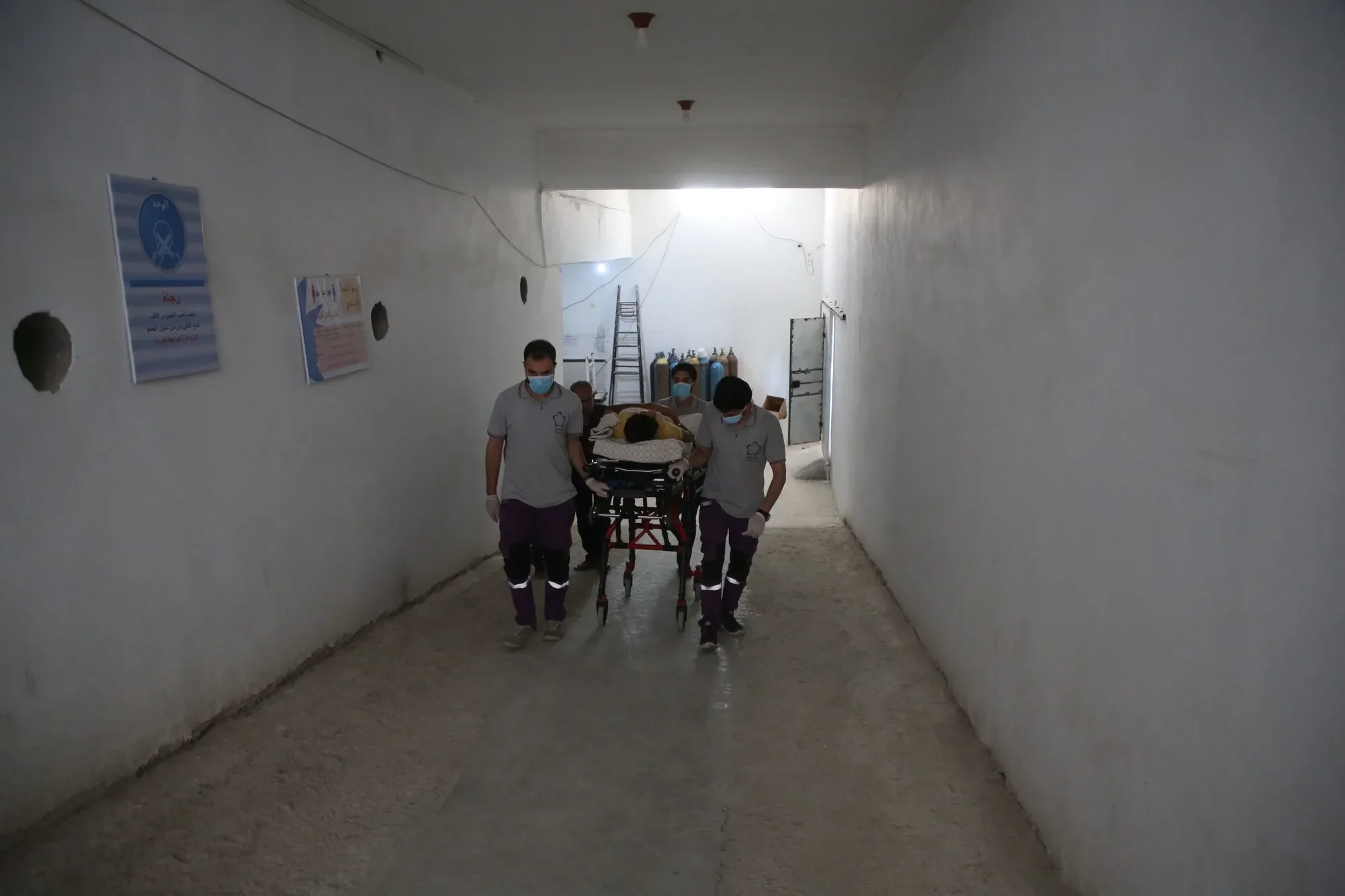Amman, 24 September 2021 – As Northwest Syria faces a second wave of COVID-19, hospitals and COVID-19 Community Treatment Centers (CCTCs) in the opposition-held area are unable to cope. Intensive Care Units are full, while COVID-19 Centers report an over 95% occupancy rate. Only a mere 2.5% of the four million people living in the Northwest have received the first dose of the vaccine. With positivity rates reaching unprecedented levels and the limited ability to respond, the healthcare system is on the brink of collapse.
“Unfortunately, we are unable to keep up with the increase in the number of cases, especially due to the continuous calls for relief that we receive and the lack of capacity to respond to the pandemic, such as the presence of only one transport vehicle. We have been working day and night, without interruption. Healthcare volunteers continue to bear the heavy workload in order to help patients,” says Sharif*, a member of the CARE-supported ambulance network in Northwest Syria.
This spike in the number of COVID-19 cases is also affecting the ability of women and adolescent girls to access sexual and reproductive health services, including maternal health. Many primary healthcare facilities and hospitals have had to suspend services, due to the growing number of infections among health staff. At the same time, needed sexual and reproductive medications and supplies are limited in many places.
“COVID is spreading across Northwest Syria at an alarming rate, with over 1,000 cases confirmed daily, the highest ever recorded. Approximately 11% of these newly registered cases reside in overcrowded displacement camps. We are extremely concerned that the combination of low vaccination rates, limited health staff and facilities and continued vaccine hesitancy will result in more suffering for the people of the Northwest. Women are especially at risk, as they face numerous challenges in accessing maternal and emergency obstetric care during the pandemic,” says Sherine Ibrahim, CARE’s Country Director in Turkey.
Earlier this month, over 350,000 doses of the COVID-19 vaccine were delivered across the border from Turkey. This was the largest shipment of vaccines into Northwest Syria to date. Yet, the number of available vaccines continues to be low and vaccine hesitancy persists. As the virus spreads very quickly in the camps, there is fear that cases will continue to rise there. Healthcare workers in the Northwest have witnessed that patients infected with the Delta variant experience severe symptoms, such as fever, severe shortness of breath, and coughing. While this requires advanced medical care, shortages in equipment and staff to respond to the pandemic persist.
After more than a decade of conflict, there is an urgent need to invest in a fast and equitable delivery of COVID-19 vaccines and to raise awareness about vaccine hesitancy in Syria to avert yet another crisis. This will help ensure vital needs of vulnerable populations, particularly those of women and girls, are met, including sexual and reproductive health.
For More Information:
Rachel Kent
Senior Press Officer
Rachel.Kent@care.org

